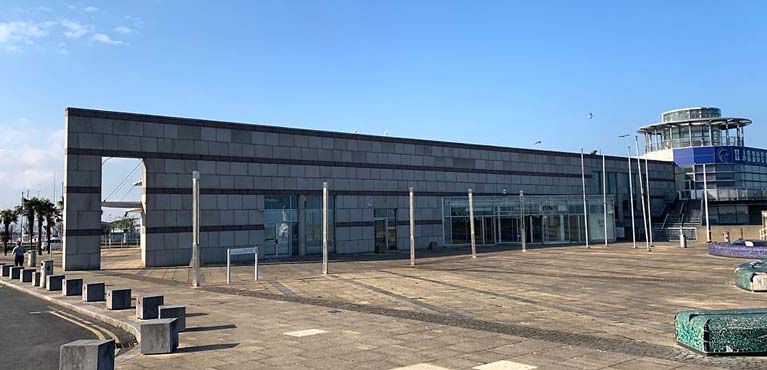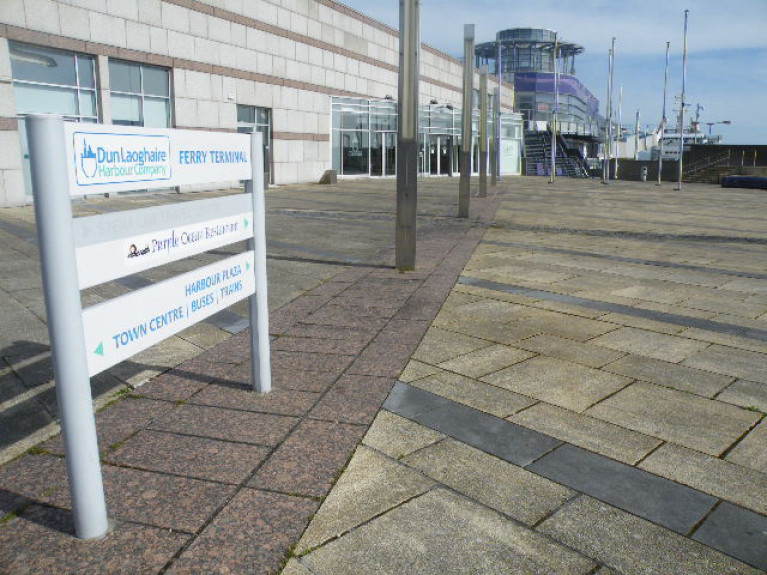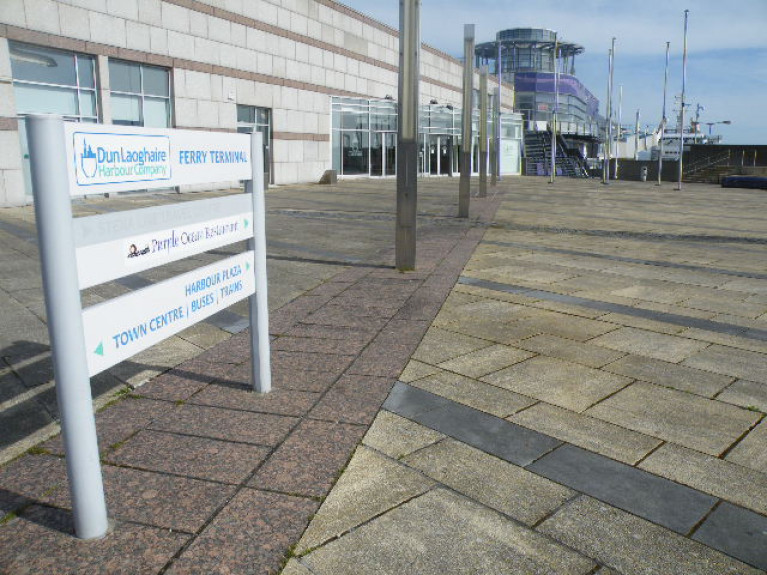Displaying items by tag: Lapetus Investments
New Ferry Terminal ‘Innovation Space’ Plans Could Create More Than 650 Jobs In Dun Laoghaire
More details have emerged of new plans for a technology hub at the site of the former Stena ferry terminal in Dun Laoghaire.
Lapetus Investments Ltd, trading as Quarterdeck Innovation, envisions a “co-working innovation space” within the St Michael’s Pier terminal building in Dun Laoghaire Harbour.
It intends “to create a technology hub whereby small and medium-size businesses can collaborate in a community-based environment that promotes and fosters entrepreneurship, through a spirit of innovation and creativity”.
The project team is led by accountant Hilary Haydon, a past president of Dun Laoghaire-Rathdown Chamber of Commerce and DLR Local Enterprise Office evaluation committee member.
And it’s hoped the scheme could create more than 650 jobs after five years in the south Dublin port town — which will pique the interest of the waterfront yacht clubs among many other local stakeholders.
 From Ferry terminal to state-of-the-art innovation campus - plans are in place to transform the old building Photo: Afloat
From Ferry terminal to state-of-the-art innovation campus - plans are in place to transform the old building Photo: Afloat
Key benefits touted by Quarterdeck Innovation include generating value of €10 million to Dun Laoghaire-Rathdown County Council over its first 10 years, as well as a local spend of €5 million annually.
And the project emphasises integration with its location, positioning the hub as particularly attractive for marine technology and research.
Lapetus/Quarterdeck intends to repurpose the building’s interior as a “state-of-the-art innovation campus” proposing “sensational sea views from almost every desk”.
In addition, its ground floor level would be a ‘Food Hall’ acting as a common area for co-workers to relax away from their desks, and which would also be open to the public as “an opportunity for strong local community interaction”.
The project partners have also pledged to “assist and collaborate closely” with the feasibility study team for the National Watersports Campus being proposed for Carlisle Pier to help “improve the harbour’s infrastructure resulting in improved access, job creation and strong tourism potential”.
Proposals to develop the former Stena ferry terminal were first made in 2017 but later scrapped over licensing issues.
Much more recently, the site has been suggested by a local senator as a base for a Covid-19 testing centre amid the current coronavirus pandemic.
Dun Laoghaire Ferry Terminal Plans ‘Could Be Trojan Horse For Unsuitable Development’
Dun Laoghaire Harbour is on the verge of an investment and development boom — but the unknown provenance of one investor in a key waterfront asset gives pause for thought, writes local resident Paddy Shanahan.
Lapetus Investments Ltd has submitted a planning application to take control of the former Stena ferry terminal by way of a 15-year lease which Dun Laoghaire-Rathdown County Council will be voting either for or against on Monday (10 February).
The investor has also applied to change the ground floor restaurant, in plans for a mixed-use co-working space agreed last year, to a food court — a move backed by at least one local stakeholder.
Readers will be aware that several hundred different stakeholders have agitated for Dun Laoghaire Harbour to be developed as a marine sports campus. And the Council Executive have recently agreed that a marine sports campus is the future for Dun Laoghaire Harbour.
Opening the harbour to the general public paves the way to regeneration of the town centre and an investment thesis that will open up many opportunities bringing in many investors.
Less than two weeks ago, €400,000 was secured from the Government for a feasibility study on the marine campus project; the follow-on investment would be many millions and a boon to Dun Laoghaire.
The terminal building is the jewel in the crown and will be at the centre of proposed marine sports-related initiatives and/or businesses.
However, Lapetus Investments are unknown, and provide no information about themselves only that they wish to build an innovation hub. That should be unacceptable to elected councillors.
The terminal building is the jewel in the crown, and will be at the centre of proposed marine sports-related initiatives and/or businesses
Any development in the harbour and its historical and protected assets should require full disclosure and prior discussion. Anything less is a disservice.
Extremely worrying, and a major red flag, is their application to remove condition number two of the previously granted planning permission, which was placed to ensure the development remains compatible with the Dun Laoghaire-Rathdown County Development Plan 2016-2022.
From the DLRCoCo documentation, the condition states: “This permission shall be for a period of 10 years from the date of the final grant of permission. Four years from the final decision date, the Applicant shall submit a full review/monitoring report, together with floor plans, in respect of the permitted use detailing the overall use and corresponding floor area, demonstrating that the development remains consistent with the particulars of this permission.
“At the end of the 10-year period, the use of the building shall cease unless, permission for its continuance and/or change of use (as required) has been granted by the Planning Authority or An Bord Pleanála on appeal.”
A technology hub is worthy of serious consideration. However, under the terms of their application they wish approval for, Lapetus could use the proposed tech hub as a Trojan horse for other development which goes against all principles of what we, the council and many others are fighting for.
Their application precedes the grant of the feasibility study funds. As such, any vote needs to take place only after the feasibility study is complete and more is known about Lapetus.
Any councillor who votes for granting this lease will be doing so against the wishes of a great many residents of Dun Laoghaire-Rathdown.
All stakeholders in the harbour should remain vigilant on this issue, and I urge all who would agree to pass their concern on to DLRCoCo councillors and urge them to vote against the application until all the facts are clear and the study is complete.































































